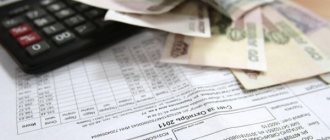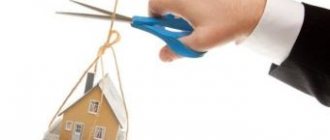Rent amount for a 1-room apartment
stop fucking with oil
Oil production costs in the Russian Federation decreased from $5-7 per barrel to $2.8. This means that Russia's largest oil production projects are quite comparable to projects in the Persian Gulf region.
“I would like to draw your attention to the fact that Russia’s largest oil production projects are on a cost curve significantly lower than their main competitors and are quite comparable to projects in the Persian Gulf region. The level of oil production costs in Russia in recent years was 5-7 dollars per barrel, and in the current price conditions, taking into account the weakening of the ruble, it has dropped to 2.8 dollars per barrel,” he said.
This, according to Sechin, “allows us to deliver even under the lowest price scenarios, and allows partners who decide to enter Russian assets to count on a profitable return on investment.” Available estimates of the potential for oil production in Russia are significantly higher than the levels achieved today, he added.
Why do prices for communal services vary so much even within Moscow and the Moscow region (not to mention throughout Russia)? In which areas do residents pay more, and in which less? Let's figure it out with the experts
vahmg/Fotolia
Our monthly rent consists of two parts: payments for housing services and for utilities.
Housing services include house maintenance, general house needs, routine repairs and management of the common property of the house. The money for them goes to management companies and homeowners associations.
Utility resources are electricity, heat, gas, water supply and sewerage. This money does not end up with the management company and the homeowners association, although it passes through them. Payments for “utilities” are transferred to companies that supply homes with resources
. For example, in Moscow, payments for gas are sent to Mosgaz.
Review of the Moscow real estate market in September 2017
In which city near Moscow is it better to buy an apartment?
The main share of the rent is made up of utilities - this is approximately 70% of the total amount. Maintenance of the house and territory accounts for about 30%
. For example, if the payment for housing and communal services amounted to 1,000 rubles, then 700 of them are “utilities”, which in full goes to resource supply organizations, and 300 is to cover housing services.
Why are tariffs for housing and communal services different in different regions?
Tariff is the rate for utility services, which is determined by the regional government. But local authorities cannot set a tariff arbitrarily: the Federal Tariff Service imposes its own restrictions for each subject of the Federation.
The difference in tariffs is explained by different climates and features of public utility infrastructure in the regions. The price is influenced not only by the cost per unit volume of the resource (cubic meter of water or gas), but also by how much transportation through the municipal infrastructure costs. Therefore, even within the same region, tariffs may differ.
How much do residents of Moscow and the Moscow region pay for utilities?
Tariffs for utility services in Moscow are managed by the Moscow Government, and in the Moscow region - by the regional committee for prices and tariffs.
Prices for services in a particular house depend on the degree of improvement of courtyards, playgrounds and sports grounds, the presence of a garbage chute in the house, an elevator, the degree of wear and tear of the house and other factors.
Thus, even in residential complexes in Moscow and the Moscow region, the difference in monthly payments can be almost 2 thousand rubles. For example, we took the same volume of consumption for an apartment with an area of 53.5 square meters. meters and a family of four.
Moscow
| Service | Chertanovo South, Varshavskoe highway | Chertanovo Central, st. Red Lighthouse | Ryazan district, microdistrict. "Volzhsko-Oksky" | Teply Stan, st. Ak. Vinogradova | village Pykhtino, microdistrict "Solntsevo-Park" |
| and home renovation (RUB/sq. m) | 25,05 | 25,05 | 25,05 | 27,6 | 38,5 |
| Heating (rub / Gcal) | 1742,92 | 2195,61 | 2 199,24 | 2 195,61 | 1 938,07 |
| Hol. Water supply (rub/cubic m) | 35,4 | 35,4 | 35,4 | 35,4 | 36,64 |
| Gor. Water supply (rub/cubic m) | 180,55 | 172,41 | 180,55 | 172,41 | 168,32 |
| Water disposal (rub / cubic m) | 25,12 | 25,12 | 25,12 | 25,12 | 44 |
| (-) intercom (RUB / pcs.) | — | 64 | 75 | 64 | — |
Moscow region
| Service | Lobnya | Reutov | Krasnogorsk district, village Otradnenskoye, village Putilkovo | Leninsky district, Vidnoye, microdistrict. "Southern Vidnoye" | Leninsky district, village Drozhzhino-1 and Drozhzhino-2 | Leninsky district, Bobrovo village | Balashikha | Leninsky district, rural settlement Bulatnikovskoye, Butovo village, Butovo-Park residential complex |
| Gas (rub / cubic m) | 59,1 | — | — | — | — | — | 61,4 | |
| and home renovation (RUB/sq. m) | 32,81 | 35,7 | 36,94 | 38,53 | 38,53 | 38,53 | 41,51 | 38,06 |
| Heating (rub / Gcal) | 1754,66 | 1783,65 | 2132,14 | 2055,28 | 2102,89 | 2102,82 | 1930,13 | 2102.82 |
| Hol. water supply (rub/cubic m) | 19,07 | 41,47 | 39,68 | 39.68 | 39,68 | 39,68 | 39.68 | 39,68 |
| Gor. water supply (rub/cubic m) | 123,47 | 141,36 | 188,43 | 174,77 | 177,9 | 177,9 | 165.21 | 39,68 |
| Water disposal (rub / cubic m) | 41,67 | 27,77 | 39 | 39 | 39 | 39 | 39 | 39 |
| (-) intercom ( RUB / pcs.) | 40 | — | — | — | 30 | 45 | 40 | 50 |
| Gor. Water supply: heating | — | — | — | — | — | — | 2102,82 |
Do not miss:
How to solve problems with the management company?
How to stop paying utility bills in an empty apartment?
Should a conscript soldier pay utility bills?
What is the rent in the apartments, are there any nuances when renting and living?
The articles do not constitute legal advice. Any recommendations are the private opinion of the authors and invited experts.
Invoices have been issued for the month of January.
1. Please note the changes in receipts:
Decree of the Government of the Moscow Region dated August 5, 2015 N 650/26 “On the minimum amount of contribution for the overhaul of the common property of apartment buildings located on the territory of the Moscow Region for 2020”
The minimum amount of contribution for the overhaul of the common property of apartment buildings located on the territory of the Moscow Region has been approved.
Thus, for 2020 the minimum contribution amount is set at 8 rubles 30 kopecks
per month per one square meter of the total area of the premises in the apartment building, owned by the owner of such premises.
Compared to 2020, the contribution for major repairs of the common property of the apartment building increased by 50 kopecks.
https://www.youtube.com/watch?v=0M1nX_l5ngw
The resolution comes into force on January 1, 2020.
2. A noticeable increase in heating fees in January compared to December at home.
Due to low atmospheric temperatures in January, Teploset LLC increased the supplied heating temperature to the house to 81.8 degrees.
The average monthly supplied temperature in December is 56.5 degrees. 285.9677 Gcal was consumed in total around the house.
The average monthly supplied temperature in January is 72.5 degrees. 494.9190 Gcal total consumed around the house
In this regard, there was a difference in January compared to December throughout the house - 208.95 Gcal (cost of 1 Gcal - 1886.23 rubles), which is - 394,127.75 rubles, which increased the heating fee in each apartment .
Source: https://kostner.ru/razmer-kvartplaty-za-1-komnatnuyu-kvartiru
How much do they pay for utilities?
Payments for residential accommodation and utilities are trending upward. These country statistics apply to all regions. When calculating, the price for using living space is calculated based on the number of square meters.
Utilities) are estimated by summing up the cost of cold and hot water, heat, gas, and other amenities. In large cities, rent rates are much higher than for the same area in small towns.
The average monthly cost of living in a three-room apartment for 2020 reached 6.5 thousand rubles. In the winter season it is at its maximum.
Residents' payment obligations
The rent, including utility bills, is finally established under an agreement with the HOA (Home Owners Association) or management company. For the calculation, the legislator's tariffs are applied, related to square meters of a specific area. Residents of houses in disrepair do not pay rent.
The law explains the term “rent” as follows: it is a sum of money transferred by citizens to housing and communal services enterprises (Housing and communal services) in the form of payments. Price includes:
- exploitation of living space;
- repair;
- payment of utilities.
Every tenant is required to pay for their accommodation, regardless of their source of income. This norm is specified in Art. 157 Housing Code of the Russian Federation (Housing Code of the Russian Federation). It also sets out the regulations on how payments are made and services are provided.
- In Art. 154 of the RF Housing Code describes the structure of payments.
- Art. 155 LCD - rules and terms by which payment is made.
- Art. 157 - methods of calculation using instruments, norms per person, how much you need to pay according to the fixed amount.
Some citizens, due to financial difficulties, cannot pay the amount every month before the 10th. Failure to do so on time will result in penalties. If there is a malicious attitude towards responsibilities and large debts, a person may lose the right to provide utility services.
Usually you are asked to pay the amount against a receipt that is delivered to your mailbox. The document contains complete information: tariff charges, prices, consumption standards, services provided. The law allows for partial payment of the amount indicated on the receipt form.
Rates
Tariffs for services and housing are set by local governments and state authorities. The standards from the legislation are taken as a basis. Regions can introduce their own tariffs for making payments by citizens. In some areas, social status is taken into account. There are benefits to help the poor and other categories in need:
- disabled people;
- minor orphans;
- pensioners;
- unemployed;
- persons with incomes less than 50% of the subsistence level.
Regulatory and legal acts are regulated by the Ministry of Construction and Housing and Communal Services. The same department sets tariffs based on average values.
Average rent
Looking around the country, you can see that rents vary greatly. If in one particular region citizens pay 2 thousand rubles for a one-room apartment, in another city residents pay 3,000 monthly.
About 17% of the family budget consists of rent and utilities. The average amount is derived from the calculation that in the winter season the charges are higher, which is associated with heating.
And also in the building of 5 floors there are no additional amenities: an elevator, a garbage chute, which are paid for by residents of nine-story buildings.
For example, it will be useful to find out what the rent is for a two-room apartment. Tariffs are approved by city governments. In 2020 they were increased. The average monthly cost of living is 3.7 thousand.
rubles per month for an apartment of about 50 sq. meters, two-room, if no more than two people are registered in it. How much citizens pay for electricity and some other needs is not included in the amount.
And for a one-room apartment (30 m2) it costs approximately 2 - 2.4 thousand rubles.
Tariff rules
The law establishes average tariffs for the country (for all types of buildings). So for a three-room living space they pay up to 5 thousand rubles. Amendments are made by regional authorities taking into account local conditions. For example, the city administration decided to charge 7.5 rubles per 1 meter of living space as the base rate. The material of the building walls is taken into account: brick. panel or wood.
According to the usual rule, the footage is summed up, taking into account the number of residents. Utilities are charged according to the readings of water, gas, electricity meters (metering devices). As a result of the calculation, citizens have different amounts that are not related to the average value.
Receipts are also often issued separately for each service. Garbage removal from the area near the house is calculated based on square footage, when a “kopeck piece” pays less than a “three ruble” in the same building.
The tariff for each meter is approved in an agreement with the Housing Office (Housing Maintenance Office).
An annual review of rents, consumption standards and tariffs with amendments to tariff plans is generally accepted. The housing office, by law, sends all residents a month before delivery of the receipt a written notification of changes.
What is included in payments
Article 425 of the Civil Code of the Russian Federation provides for rights and obligations in the provision and receipt of public services. Typically, the fee includes:
- specific characteristics of the living space;
- consumption of water (hot and cold), gas, electricity, heating;
- garbage removal;
- cleaning the area near the house;
- lighting of the adjacent space.
For example, thermal energy costs according to the tariff in the capital for 2019 from 1550 (until June) to 1600 rubles per Gcal (from July). Regions make adjustments to the rate. Electricity can be priced at 3.5 rubles per 1 kWh. The time of day is taken into account: during the day it is 3.55 rubles, and at night - 2.14 rubles per kWh. For rural areas, a coefficient has been introduced for these figures.
The rent is affected by the class of construction. Square meters in a townhouse cost 50 rubles per month each. If you buy a similar living space measuring 120 sq. meters in the “comfort” class, you will have to pay up to 15,000 rubles monthly.
When paying for “utilities” in accordance with the readings of the meters, which must be kept by citizens in order to avoid being charged at the maximum tariff, the readings are taken by a representative of the housing office.
Heating is calculated for each meter (for 1, 2, 3-room living space). Water and electricity - according to the number of living persons multiplied by the tariff. The gas rate (without a meter) is multiplied by the number of residents.
It does not matter which apartment is supplied with the resource: two-room, three-room or 1-5-room.
Subsidies
Both “utilities” and rent, with the observed constant increase in tariffs, are becoming unaffordable for some segments of the population. There is a social program to support the poor. When subsidies are provided, expenses are reimbursed. The rules are regulated by Government Decree No. 761 of 2005. The purpose of these measures is to resolve housing problems.
If a person’s income is less than the subsistence level, a coefficient is applied that reduces the maximum amount of housing payment. This figure is set differently for regions, taking into account factors:
- remoteness;
- local conditions;
- consumer basket.
The state assists citizens for whom rent becomes unaffordable relative to expenses. To apply for a subsidy, a citizen must visit the social protection office in his locality. If an individual (or citizens)’ housing and services associated with it amount to more than 22% of their income, such assistance is assigned.
Conclusion
With the annual increase in the cost of payment for accommodation and housing and communal services, the question of how this amount is calculated is relevant. It is known that large cities are somewhat “more expensive” in terms of rent. The price depends on the size of the area, the consumption of living resources according to metering devices is taken into account.
Finally, the number of registered persons is of great importance. The specific features of the monthly calculation can be understood by familiarizing yourself with the relevant legislation governing these issues. It would be useful for every citizen to know regional standards, the application of the tariff schedule and the calculation procedure.
Confidence in your rights will allow you to control the situation.
Source: https://okommunalke.ru/oplata/skolko-platyat-za-kommunalnye-uslugi
Obligation to pay
In accordance with current housing legislation, any tenant must make a certain payment for utilities every month. In particular, Article 153 of the Housing Code indicates that every citizen must, by the 10th day of each month following the month spent, make the appropriate payment, calculated in accordance with the volume of utilities consumed.
Civil legislation also states that all persons living on the territory of Russia must make the appropriate payment for housing, unless the agreement drawn up with them specifies any conflicting norms. That is why this obligation is mandatory indicated in the process of drawing up a social tenancy agreement, as it is specified in Articles 672 and 678 of the Civil Code.
If a person ignores his obligations to pay for the consumed volume of utilities, then in this case a certain penalty gradually begins to accrue on the calculated amount, which will accumulate with each subsequent day of delay.
If the obligated person experiences any temporary difficulties, he can apply for an installment plan from the landlord, the owner of the property, or directly from the management organization itself.
If a person is not in principle in the apartment for a certain period of time and does not use any utilities, the payment for which will be charged not in accordance with tariffs, but according to established standards, it will be possible to contact government officials to recalculate the payment.
Payment can be made using both cash and non-cash means. It is worth noting the fact that today there is a fairly wide variety of payment methods available, including terminals, bank tellers, telephone or the Internet.
Before any citizens occupy the property, utilities are paid for by the appropriate municipal or government agencies. The basis for starting payment is the agreement that came into force from the moment of its execution.
How much do housing and communal services cost in different areas of Moscow and the Moscow region?
vahmg/Fotolia
Our monthly rent consists of two parts: payments for housing services and for utilities.
Housing services include house maintenance, general house needs, routine repairs and management of the common property of the house. The money for them goes to management companies and homeowners associations.
Utility resources are electricity, heat, gas, water supply and sewerage. This money does not end up with the management company and the homeowners association, although it passes through them. Payments for “utilities” are transferred to companies that supply homes with resources. For example, in Moscow, payments for gas are sent to Mosgaz.
Review of the Moscow real estate market in September 2017
In which city near Moscow is it better to buy an apartment?
The main share of the rent is made up of utilities - this is approximately 70% of the total amount. Maintenance of the house and grounds accounts for about 30%. For example, if the payment for housing and communal services amounted to 1,000 rubles, then 700 of them are “utilities”, which in full goes to resource supply organizations, and 300 is to cover housing services.
Payment Responsibilities
The amount of payment for the use of residential space is calculated depending on the square footage of the housing.
In large cities, the cost of using an apartment significantly exceeds the amount charged for an apartment of the same area in other localities.
As a rule, it should not be less than the size established by the utility.
But its final size is established under the terms of the agreement concluded with the HOA.
It is calculated taking into account the total area of the apartment and the tariff established by the legislator.
If the building is in disrepair, then rent is not paid.
Reflection in the law
The term “rent” means a certain amount of money that is paid by Russian citizens to housing and communal services enterprises.
Payment is made for the social rental of living space, maintenance of living space, its repairs and provided utilities.
It is the responsibility of each tenant to pay rent for living in the living space.
He is obliged to pay regardless of whether he has a source of income or not. The norm is provided for in the instructions of Article 157 of the Housing Code of the Russian Federation.
It regulates issues related to payment for residential premises and utility services provided by the Housing Office.
Provisions of the articles of the Housing Code regarding payment of utility bills:
Due to financial complications, some citizens do not make monthly payments until the 10th of the current month.
Late payment of utilities will result in a penalty being charged on the rent.
As a rule, persistent non-payers of rent are deprived of the right to use housing and communal services.
Receipt form
Payment of rent is carried out on the basis of a payment receipt, the form of which was introduced in 2012.
It contains complete information about the payments due, including utility charges.
The receipt form is divided into two parts, the first indicates payments for the consumption of water, light, heating and gas according to meter readings.
The second lists the amounts payable, accrued by common building meters for heating the entrance to the building and its lighting at night.
The receipt form contains information about the consumption rate of each service and its cost.
The legislator has provided for the possibility of partial payment for living in an apartment and provided utilities.
It was approved by the Ministry of Regional Development, which deals with issues of housing and communal services.
The procedure for determining the amount of rent and calculating the cost of utilities
The amount of rent and the cost of utilities is constantly increasing. In large cities, housing costs are higher than in small towns. Having heard about this, Russians find out what the rent is in Moscow. Its size is calculated by the number of square meters in the room. The cost of communal services is determined based on meter readings or established consumption standards.
Legislative regulation
In Russia, the obligation of residential property owners to pay for utilities is prescribed by law. Rent in an apartment is the amount transferred to Russians to housing and communal services enterprises for services rendered: housing maintenance, repair work and the provision of other housing and communal services.
The owner or responsible tenant is always required to pay for utilities; the availability of income does not matter. This norm is prescribed in the Housing Code. The obligation to pay for an apartment arises from the moment of re-registration of ownership rights or the conclusion of an agreement on the rental of housing.
Article 154 of the Housing Code establishes the structure of payment for an apartment. The rent for the apartment is payment for:
- rental (for housing belonging to the state or city housing stock);
- use of housing by tenants;
- housing maintenance - payment for the apartment;
- maintaining property considered public in good condition: paying fees for routine repairs and paying for utilities that were consumed during the maintenance of common property (water and electrical energy).
The owners pay a separate fee for future major repairs. Housing and communal services provided to residents are paid separately.
Article 155 of the Housing Code of the Russian Federation determines that you pay for an apartment in Russia on the basis of the payment documents provided, or, in their absence, the information posted in the system.
The amount of payment for an apartment is established by a meeting of co-owners if a partnership of co-owners or a cooperative is organized. In the absence of a decision on the choice of method of managing the house, rent rates are set by the municipality or other regional authorities.
If you decide to pay for housing and services later, you will have to pay the accrued penalty separately. When faced with financial difficulties, you should ask for a deferment or installment payment. Make a written request to the management company.
Installed size
If you pay an unaffordable amount for an apartment in the capital or another region of the Federation, then find out about subsidies. If income is below the established maximum, part of the expenses is reimbursed.
You will have to pay less for a 3-room apartment by applying for subsidies. The amount of social assistance depends on the amount of income, the size of the occupied premises, the number of residents, and the amount of costs for paying for services. Beneficiaries are provided monthly compensation.
On average, for 1 room in the capital they pay more than 3,000 rubles, including fees for utilities received. For a 2-room apartment, owners pay 4,000 – 6,000. And for a three-room apartment in the capital, owners have to pay 7,000 – 9,000.
In St. Petersburg, the amount of payments is similar. The rent includes the following:
- management of a multi-storey building;
- maintenance of public property;
- carrying out repairs necessary to maintain the house and engineering systems in proper condition;
- cleaning of adjacent areas;
- other housing and communal services.
The total rent reaches 40 rubles/m2. Therefore, the average rent for a two-room apartment in Moscow will be lower. Payments for major repairs do not exceed 4 rubles/m2 in St. Petersburg, while Muscovites have to pay 15 rubles/m2 per month. In general, you will have to pay almost the same for a multi-room or one-room apartment in the capital and St. Petersburg.
Utilities for an apartment in Moscow depend on the number of residents and resource consumption. The amount of consumption is determined by meter readings. According to reviews from residents of municipalities outside the capital, the overall cost of utilities is higher.
Total Cost Calculation
You can understand how much a utility bill costs per month after a full cost calculation. Utility fee includes:
- rent;
- electricity;
- warm;
- gas supply;
- water supply (hot, cold);
- drainage
What rent for a three-room apartment will depend on the level of consumption and the availability of meters. The calculation for metering devices is simple: the tariff is multiplied by the amount of resources consumed.
The total payment for utilities in the Federation is calculated monthly. Payment amounts vary from family to family due to different amounts of resources consumed.
In the absence of meters, calculations are carried out according to the norm. In this case, the owners pay a monthly fixed amount for the apartment, calculated depending on the number of registered citizens.
In communal apartments, the payment procedure is determined by the residents. Rent payments are calculated based on the number of registered residents or the occupied space. All disputes that arise regarding the procedure for calculation and payment are resolved in court.
Benefits provided
The size of utility bills and rent in Moscow can be significantly reduced by applying for benefits. If the amount of utility bills exceeds 22% of the family's total monthly income, a subsidy is provided. For the poor, the calculation is carried out taking into account an adjustment factor. Russians have the right to find out the procedure for registration and the amount of compensation from the Social Security Administration.
The payment can be reduced by the subsidy issued and the benefits received. Rent rates do not change; the state simply compensates for the cost of some services. Benefits are available to pensioners, Russians with many children, disabled people, single mothers, and war veterans. The amount of compensation can reach up to 50% of the size of the communal apartment.
Effect of the decision regarding the amount
Rent is calculated in accordance with the norms of Russian Government Decree No. 491. As for Decree No. 307 “Rules for the provision of utility services to citizens,” adopted in the same year, it is no longer valid as of July 2020.
According to the first resolution, the costs of repairing and maintaining a house are expressed in the following points:
- to maintain engineering systems that ensure the supply of residential premises with utilities;
- collection of debts for unpaid services;
- taking readings from meters;
- maintaining information systems with the help of which payment information is collected and stored;
- providing payroll to owners to pay for housing and communal services.
It is worth noting that the amount to repay the bill depends on such an indicator as the level of improvement. It is compiled in accordance with the list of utilities that the owner can receive.








